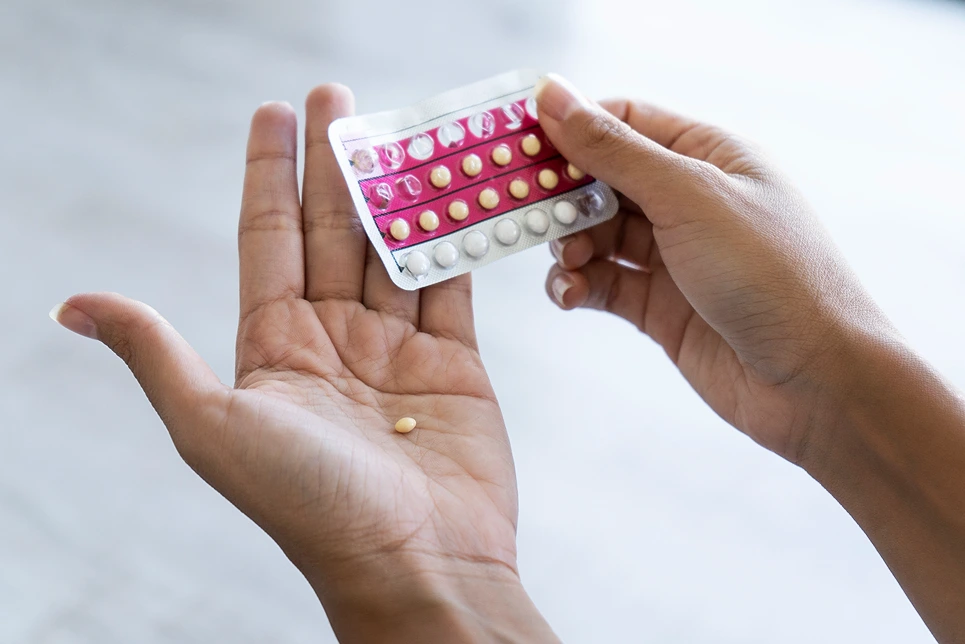Everything You Need to Know for Safe and Effective Family Planning

Testosterone therapy is not a typical method of birth control for people with ovaries. It’s primarily used to treat conditions related to low testosterone levels in individuals, such as hypogonadism. To prevent pregnancy, it’s wise to use additional contraception like condoms or a vasectomy while on treatment.
If you’re a man considering testosterone therapy, you’ve likely heard how it can restore energy, libido, and vitality. But before starting treatments, there’s a crucial question you must ask yourself: How will testosterone affect my fertility and family planning?
Testosterone is a double-edged sword when it comes to birth control. On one hand, low testosterone levels can diminish fertility. On the other hand, testosterone therapy can also impair your ability to have kids.
This complete guide will walk you through the ins and outs of balancing testosterone replacement and reliable contraception. You’ll learn how testosterone impacts fertility, what forms of birth control are compatible with hormone treatments, and how to work with your doctor to make an informed decision.
Whether you’re hoping to grow your family or avoid pregnancy, read on to discover everything you need to know about mixing testosterone and birth control.
What is Testosterone Therapy and What is it Used For?
Testosterone therapy is a medical treatment that involves administering testosterone to men diagnosed with low testosterone or hypogonadism.
The intended use of testosterone therapy is to treat testosterone deficiency. Low testosterone levels can cause symptoms such as decreased energy, reduced libido, loss of muscle mass, erectile dysfunction, and reduced bone density.
The goal of treatment is to return testosterone levels to a normal range. This can help alleviate hypogonadism symptoms and improve the patient’s overall health and quality of life.
According to the Food and Drug Administration (FDA), testosterone therapy is approved for men who have low testosterone due to disorders affecting the testicles, pituitary gland, or brain. These disorders cause the body to not produce enough testosterone on its own.
Testosterone is administered through gels, injections, or pellets implanted under the skin. The method of administration is determined by the healthcare provider based on the patient’s needs and preferences.
Unlock your vitality with testosterone therapy at Physician’s Rejuvenation Centers and reclaim your energy and vigor today!
Is Testosterone Therapy a Form of Birth Control?
Testosterone therapy can function as a contraceptive by suppressing the production of other reproductive hormones. However, it is not considered an effective or standalone form of birth control.
While testosterone therapy does significantly lower sperm counts for most men, some ongoing sperm production usually persists. Relying solely on testosterone therapy for birth control risks unplanned pregnancy.
Testosterone therapy works as birth control by:
- Reducing secretion of luteinizing hormone (LH) and follicle-stimulating hormone (FSH) from the pituitary gland
- Suppressing sperm production in the testes
Multiple studies have shown weekly testosterone injections can decrease sperm counts below fertility levels in men. However, sperm production and fertility usually return to normal after discontinuing testosterone therapy.
The effects of testosterone therapy are not reliable enough to depend on this treatment alone for male birth control. Even with sperm suppression, other contraceptives are needed to prevent pregnancy.
Using Testosterone Therapy and Birth Control Together

The good news is testosterone therapy does not interfere with the effectiveness of most other forms of contraception. Testosterone therapy and birth control methods like condoms, vasectomies, and your partner’s contraceptives can be safely used together.
Types of birth control proven to be safe and effective alongside testosterone therapy include:
| Condoms | The convenience and accessibility of condoms make them a top choice for men on testosterone therapy looking for birth control. |
| Vasectomy | Permanent yet reversible, a vasectomy offers reliable contraception for men who have completed family planning during testosterone treatment. |
| Partner’s contraceptive pills, patch, ring, or injections | Enlisting your partner’s help with hormonal birth control pills, the patch, ring, or shots adds extra protection against unintended pregnancy. |
| Intrauterine devices (IUDs) | IUDs placed in the uterus supply contraception that doesn’t interfere with testosterone therapy. |
| Contraceptive implants | Tiny rods implanted in your partner’s arm release steady hormones for up to 5 years of pregnancy prevention. |
| Contraceptive shots | Injectable birth control for your partner lasts 3 months per shot, eliminating the need for daily contraceptive tasks. |
Talk to one of our doctors about the best birth control options for your lifestyle and relationships while on testosterone therapy. We can counsel you on maintaining fertility or preventing unplanned pregnancy while normalizing your testosterone levels.
Discover the perfect synergy of testosterone therapy and effective birth control at Physician’s Rejuvenation Centers to confidently plan your future
Monitoring Testosterone and Sperm Levels
Men using testosterone therapy should have testosterone levels and semen analyses checked periodically to ensure effective contraception and fertility management.
Testosterone levels should be maintained in the normal range – not too high or low. Checking semen samples helps assess the extent of sperm suppression.
| Gender | Age Group | Normal Range (ng/dL) |
| Male | 20-24 years | 409-558 |
| Male | 25-29 years | 413-575 |
| Male | 30-34 years | 359-498 |
| Male | 35-39 years | 352-478 |
| Male | General | 300-1000 |
| Female | General | 15-70 |
Note: The general ranges provide a broad benchmark for normal testosterone levels in males and females. The age-specific ranges for males provide a more narrow normal range for specific age groups.
This monitoring allows adjusting testosterone doses to reach contraceptive goals without excess treatment. Discuss an appropriate testing schedule with your doctor.
Supportive Lifestyle Changes
In addition to medication management, adopting positive lifestyle habits can support male reproductive health during testosterone therapy:
- Avoid tobacco use and excess alcohol consumption. Smoking and heavy drinking have been shown to impair sperm production and quality. Nicotine causes sperm DNA damage while alcohol toxicity impairs testosterone synthesis.
- Reduce stress through practices like exercise, meditation, counseling, or other stress management techniques. High levels of stress hormones like cortisol can disrupt the hypothalamic-pituitary-gonadal axis and negatively impact fertility.
- Get sufficient intake of nutrients that support reproductive health like vitamin C, vitamin D, zinc, selenium, and antioxidants such as vitamin E, CoQ10, and lycopene. These micronutrients play important roles in hormone synthesis, sperm development, and antioxidant activity to protect sperm. A balanced diet or supplements can help ensure adequate intake.
- Limit exposure to potential reproductive toxins that may be found in some foods, plastics, personal care products, household cleaners, or industrial chemicals when possible. Certain heavy metals, BPA, phthalates, pesticides, dioxins, and other compounds have been associated with impaired semen parameters.
- Wear loose, breathable underwear and avoid excessive heat from laptops or tight clothing near the groin area. Higher scrotal temperatures can decrease sperm production.
- Get screened and treated for any sexually transmitted infections, which can cause damage to sperm function and male fertility.
Making healthy lifestyle changes and adopting supportive habits can help protect fertility while reaping the intended benefits of testosterone therapy.
Lifestyle measures nicely complement medical treatment options. Discussing any concerns with our healthcare providers is advised.
Consult the Experts at Physician’s Rejuvenation Centers

At Physician’s Rejuvenation Centers, our experts can help you balance testosterone therapy and contraception. We provide complete care including:
- Hormone Therapy for Men and Women
- Testosterone Replacement Therapy
- Enclomiphene Citrate Therapy
- Estrogen Replacement Therapy
- Progesterone Therapy
- Bioidentical Hormone Replacement Therapy
- Growth Hormone Therapy
- Fertility Preservation Referrals
- Transgender Hormone Therapy
- Integrative Wellness Plans
We approach hormone balance from an anti-aging and preventive standpoint. Testosterone therapy can transform vitality and quality of life when expertly regulated.Schedule a consultation today to discuss optimizing your testosterone levels and fertility goals. Our compassionate providers will design a treatment plan catered to your needs for excellence in intimate health and wellbeing.

